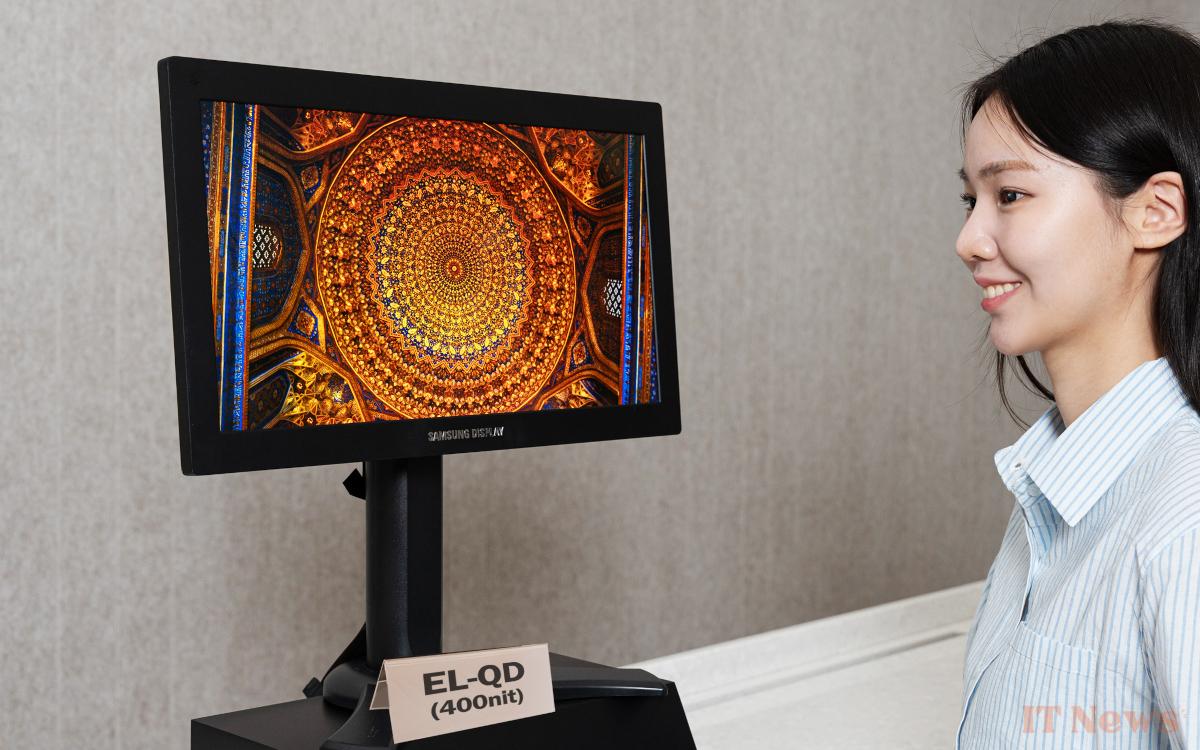Samsung continues to innovate in the field of displays. A new panel, still in the prototype stage, has just been unveiled. It promises much higher brightness than previous versions.
Every year, display giants take advantage of the SID trade show to unveil their latest technological advances. This 2025 edition is no exception, with several announcements designed to improve the visual quality of future devices. Between thinner, more energy-efficient, and brighter screens, manufacturers are looking to push the current limits.
Samsung Display, the Korean group's specialized division, presented a new-generation EL-QD panel. It's a prototype, but the announced figures are already impressive. One of the versions reaches a peak brightness of 400 nits, 50% more than previous models limited to 250 nits. Another version highlighted has a high pixel density, with 264 ppi compared to 202 ppi last year.
Samsung improves its EL-QD technology with a brightness of 400 nits and increased density
Unlike current QD-OLED displays, which use quantum dots only to convert blue light, EL-QD works differently. Here, they are used both to produce light and to generate colors. Each RGB pixel is made of inorganic electroluminescent materials, without cadmium. This allows for a very high level of color accuracy while reducing power consumption. This type of display also allows for deep blacks, similar to OLED screens.
The move to 100% quantum dot emissive technology offers several advantages. In addition to color fidelity, the absence of a layer dedicated to light emission allows for a thinner structure and better overall efficiency. This type of panel could, in the long run, equip high-end TVs such as The Frame Pro 2025, which focuses on a display that is both artistic and bright.
The increase in pixel density was made possible by improving the inks used and better compatibility with inkjet printing. This prototype was selected by the SID as a “outstanding article” for 2025, a clear sign of recognition for the technical innovation brought by Samsung.




0 Comments